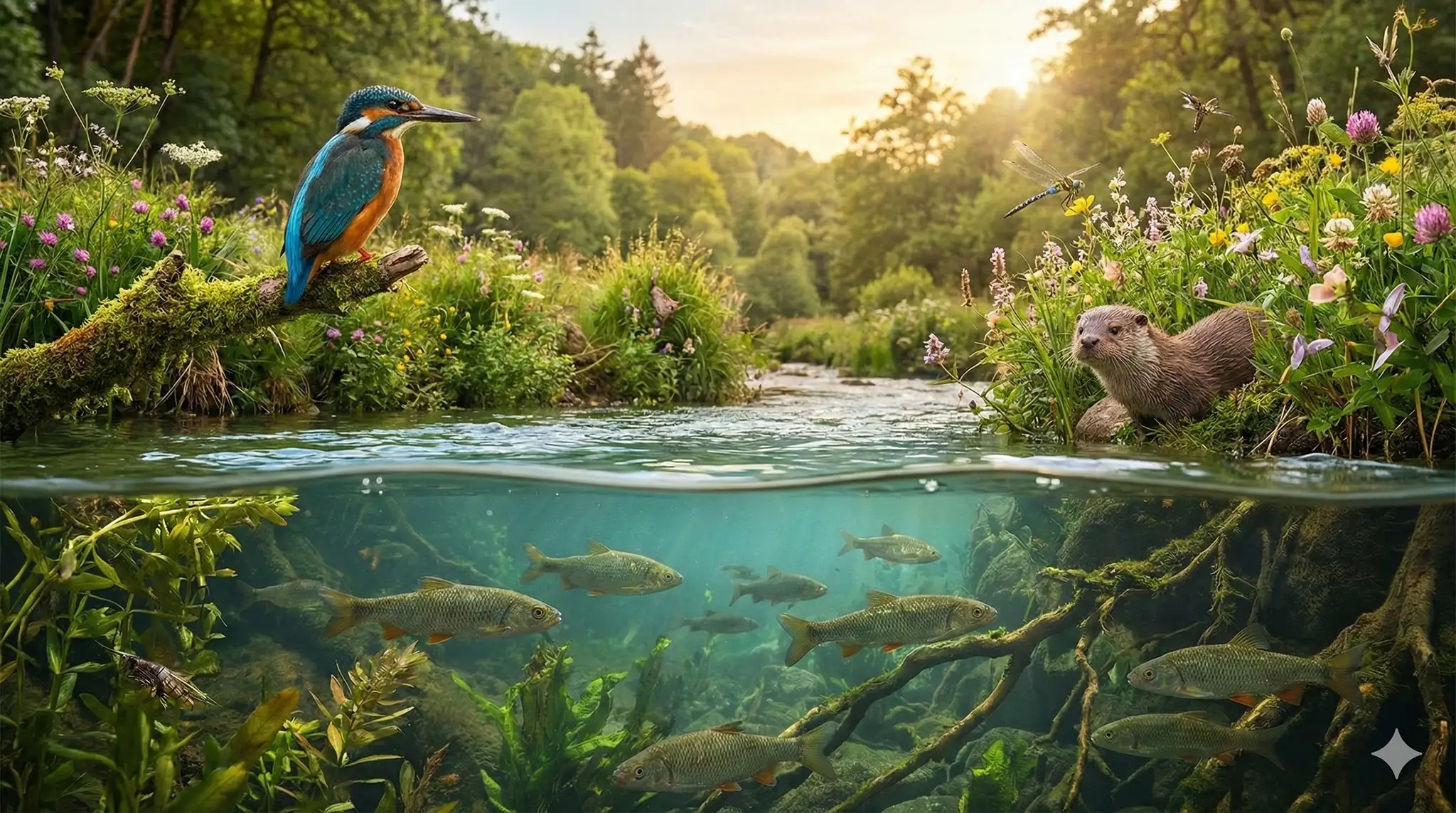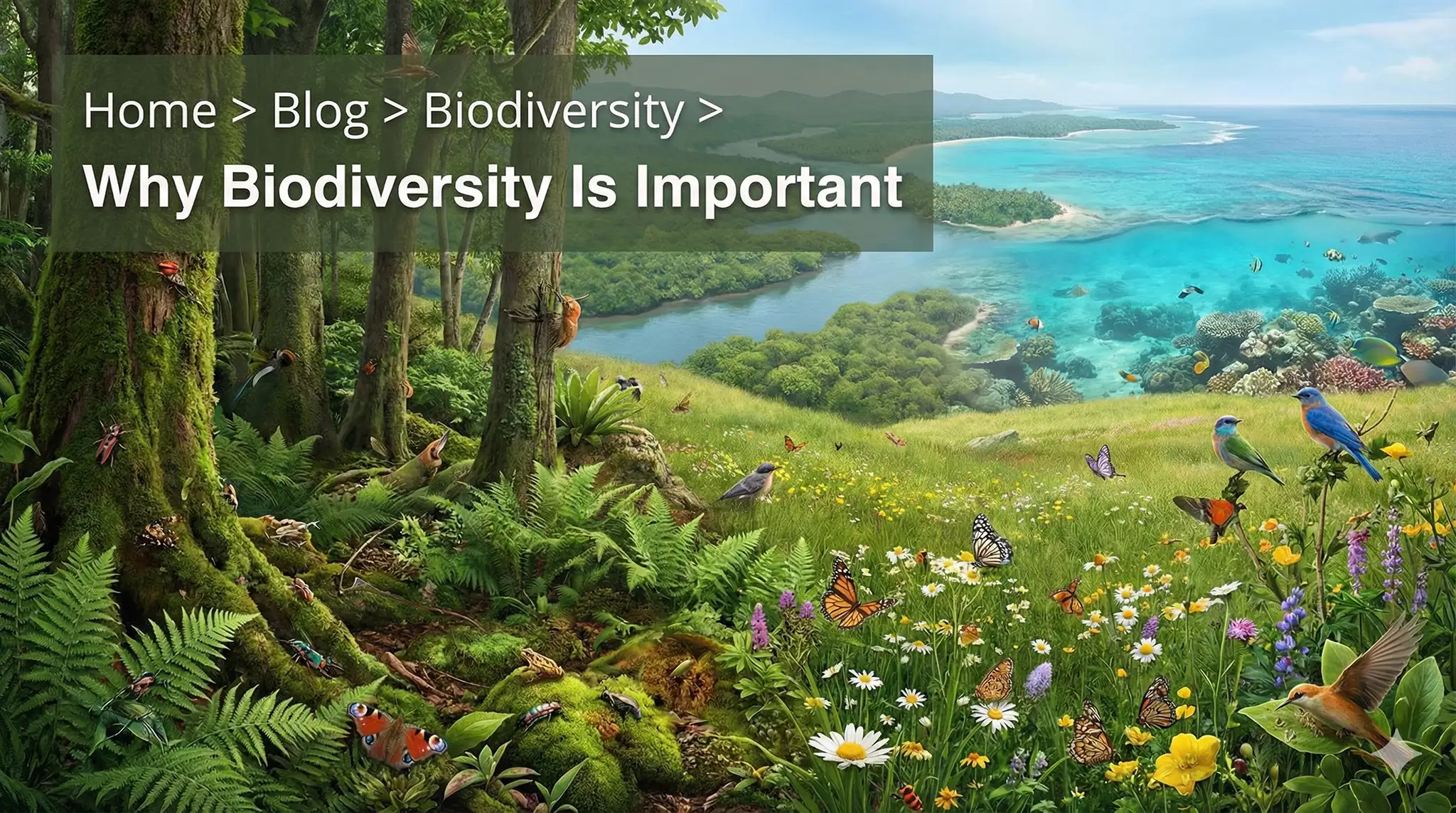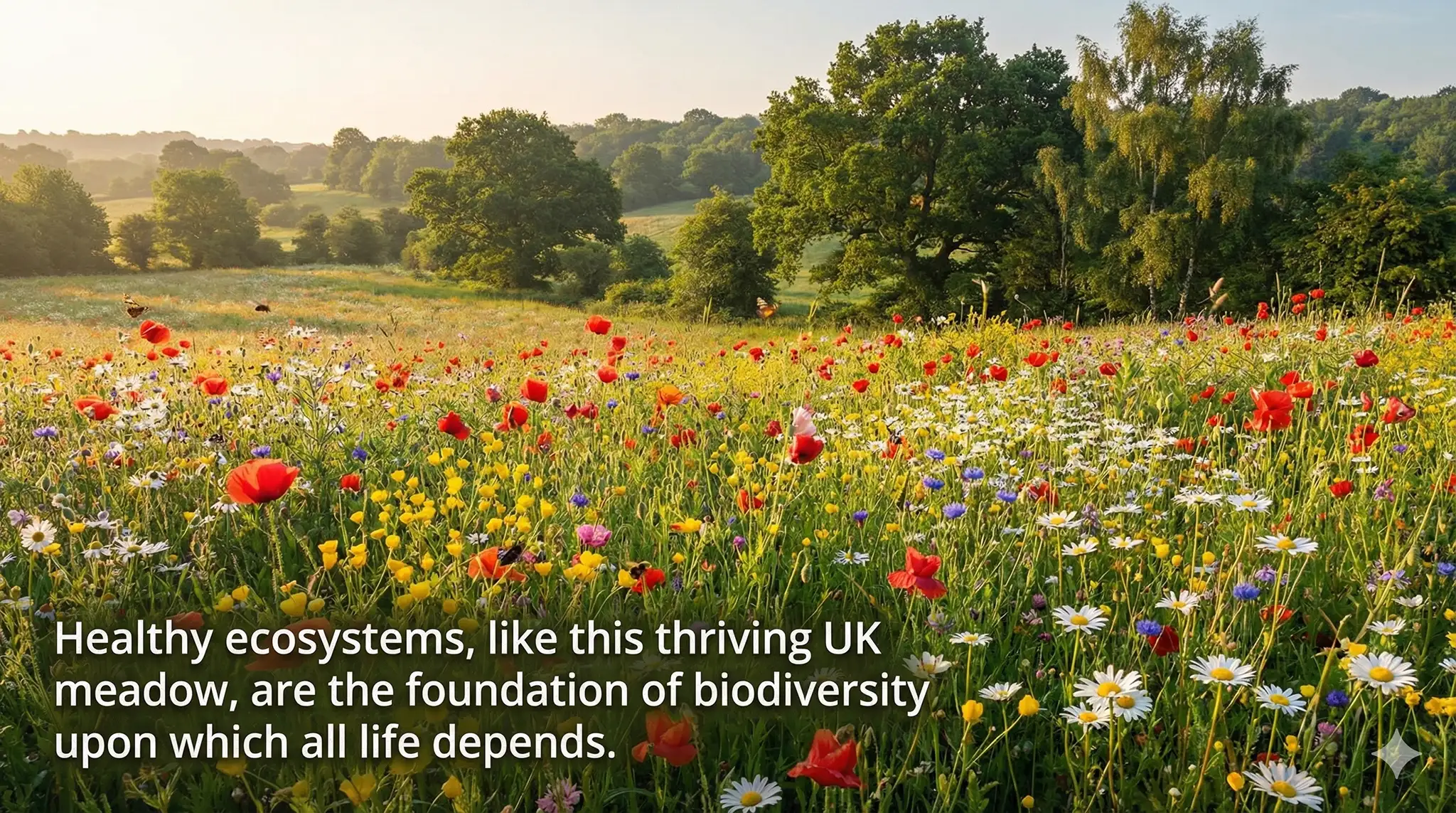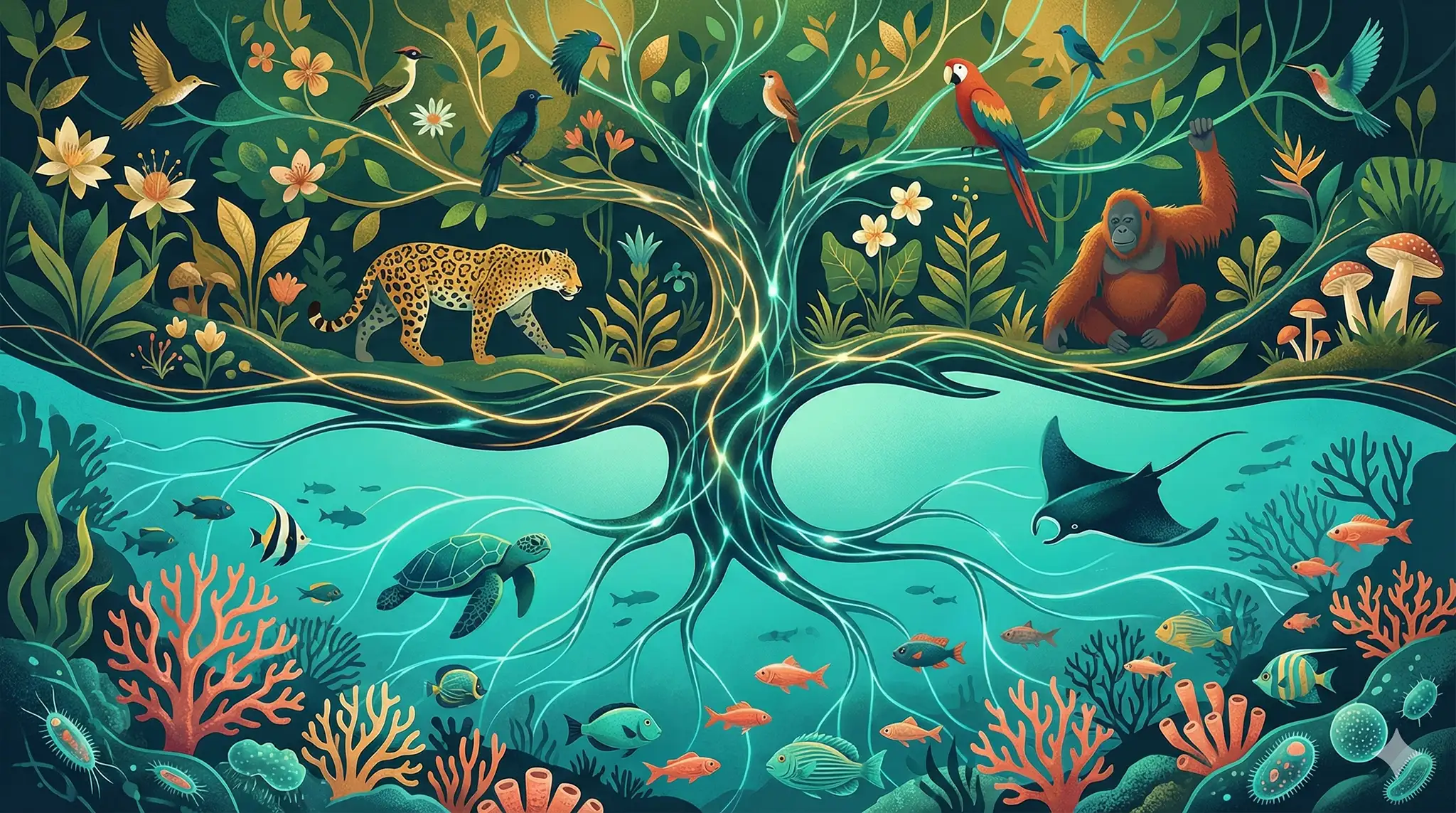Contents
- Introduction: The Indispensable Role of Biodiversity in Our Lives
- The Unsung Heroes of Our Ecosystems
- The Human Impact on Biodiversity
- Addressing the Biodiversity Crisis: Solutions and Strategies
- Working with Nature for Sustainable Development
- Promoting Biodiversity Conservation through Education and Awareness
- Collaborating for a Biodiverse and Resilient Future
- Conclusion
Introduction: The Indispensable Role of Biodiversity in Our Lives
Biodiversity, the incredible variety of life on Earth, is the foundation of a healthy and functioning planet. It encompasses the millions of known species and the countless others yet to be discovered. This rich tapestry of life is essential for providing food, medicine, and protection from natural disasters, as well as holding significant cultural and spiritual value for humans.
The Unsung Heroes of Our Ecosystems
 While large, charismatic animals often come to mind when discussing wildlife conservation, it is the less glamorous organisms that play a crucial role in maintaining the planet's health. Micro-organisms enrich soil for crop growth, pollinators provide fruit and nuts, and fish serve as a primary source of animal protein for around a billion people. Many medicines originate from plants and fungi, with potential new discoveries in remote corners of the world. Trees, shrubs, coral reefs, and mangroves protect against flooding and storm surges.
While large, charismatic animals often come to mind when discussing wildlife conservation, it is the less glamorous organisms that play a crucial role in maintaining the planet's health. Micro-organisms enrich soil for crop growth, pollinators provide fruit and nuts, and fish serve as a primary source of animal protein for around a billion people. Many medicines originate from plants and fungi, with potential new discoveries in remote corners of the world. Trees, shrubs, coral reefs, and mangroves protect against flooding and storm surges.
The Human Impact on Biodiversity
Despite the numerous benefits of a healthy planet, human actions are destroying biodiversity. Habitat changes for grazing, mining, and crop production, as well as the use of harmful fertilizers, have significantly impacted land and sea environments. Hunting animals for meat and prized body parts threatens over 300 mammal species with extinction. Climate change puts immense pressure on wildlife, as seen in the mass coral die-off in the Great Barrier Reef due to warming seas.
Addressing the Biodiversity Crisis: Solutions and Strategies
To address this crisis, humans must reduce carbon emissions and find ways to use land and water with minimal environmental damage, allowing natural habitats to thrive. Protecting biodiversity hotspots is crucial, but rebuilding biodiversity wherever possible is also essential. This can involve providing space for plants and animals to succeed or hands-on management from humans, such as the reintroduction of white stork chicks in England and the restoration of mountain gorilla populations in central Africa.
Working with Nature for Sustainable Development
In order to protect biodiversity, global development must work with nature rather than against it, and affected communities should have a say in decision-making processes. The benefits provided by nature are indispensable for human life, and preserving the planet's biodiversity is necessary for ensuring healthy, happy lives for future generations.
Promoting Biodiversity Conservation through Education and Awareness
 Raising awareness about the importance of biodiversity and the role it plays in our lives is crucial for inspiring action and change. By educating the public about the value of biodiversity, we can foster a greater appreciation for the natural world and encourage individuals to take steps to protect it. This can include supporting conservation efforts, making sustainable choices in our daily lives, and advocating for policies that prioritize biodiversity protection.
Raising awareness about the importance of biodiversity and the role it plays in our lives is crucial for inspiring action and change. By educating the public about the value of biodiversity, we can foster a greater appreciation for the natural world and encourage individuals to take steps to protect it. This can include supporting conservation efforts, making sustainable choices in our daily lives, and advocating for policies that prioritize biodiversity protection.
Collaborating for a Biodiverse and Resilient Future
Protecting and restoring biodiversity requires collaboration among governments, businesses, communities, and individuals. By working together, we can develop innovative solutions and strategies to address the challenges facing our planet's biodiversity. This includes investing in research and technology, promoting sustainable land and water use, and supporting the efforts of local communities and indigenous peoples who are often on the frontlines of conservation.
Conclusion
Embracing biodiversity is the key to a healthy planet and a sustainable future. By recognizing the indispensable role that biodiversity plays in our lives, we can work together to protect and restore the rich tapestry of life on Earth. This will not only benefit the countless species that share our planet but also ensure a healthy, happy, and prosperous future for generations to come.
Biodiversity is the foundation of a healthy planet and a sustainable future. It provides essential resources for human life, such as food, medicine, and protection from natural disasters. However, human actions have significantly impacted biodiversity, leading to habitat loss, species extinction, and climate change. To address this crisis, we must adopt strategies that prioritize the protection and restoration of biodiversity, such as reducing carbon emissions, promoting sustainable land and water use, and supporting local communities and indigenous peoples in conservation efforts.
Education and awareness are crucial in fostering a greater appreciation for the natural world and inspiring action to protect it. By working together, governments, businesses, communities, and individuals can develop innovative solutions to address the challenges facing our planet's biodiversity. Ultimately, embracing biodiversity is not only essential for the countless species that share our planet but also for ensuring a healthy, happy, and prosperous future for generations to come.
FAQ
1. What is biodiversity?
Biodiversity refers to the variety of life on Earth, including the millions of known species and countless others yet to be discovered. It is essential for providing food, medicine, and protection from natural disasters, as well as holding significant cultural and spiritual value for humans.
2. Why is biodiversity important?
Biodiversity is crucial for maintaining a healthy and functioning planet. It supports ecosystems that provide essential services such as crop growth, pollination, and protection against flooding and storm surges. Biodiversity also contributes to human well-being through food, medicine, and cultural and spiritual values.
3. How are human actions impacting biodiversity?
Human actions, such as habitat changes for grazing, mining, and crop production, as well as the use of harmful fertilizers, have significantly impacted land and sea environments. Hunting animals for meat and prized body parts threatens many species with extinction, and climate change puts immense pressure on wildlife, such as the mass coral die-off in the Great Barrier Reef due to warming seas.
4. What can be done to address the biodiversity crisis?
To address the biodiversity crisis, humans must reduce carbon emissions, find ways to use land and water with minimal environmental damage, and protect and rebuild biodiversity wherever possible. This can involve providing space for plants and animals to succeed or hands-on management from humans, such as reintroducing species and restoring habitats.
5. How can global development work with nature to protect biodiversity?
Global development must work with nature rather than against it, and affected communities should have a say in decision-making processes. This includes promoting sustainable land and water use, investing in research and technology, and supporting the efforts of local communities and indigenous peoples who are often on the frontlines of conservation.
6. What role does education and awareness play in promoting biodiversity conservation?
Raising awareness about the importance of biodiversity and the role it plays in our lives is crucial for inspiring action and change. By educating the public about the value of biodiversity, we can foster a greater appreciation for the natural world and encourage individuals to take steps to protect it, such as supporting conservation efforts and making sustainable choices in daily life.
7. How can collaboration help protect and restore biodiversity?
Protecting and restoring biodiversity requires collaboration among governments, businesses, communities, and individuals. By working together, we can develop innovative solutions and strategies to address the challenges facing our planet's biodiversity, ensuring a healthy, happy, and prosperous future for generations to come.



